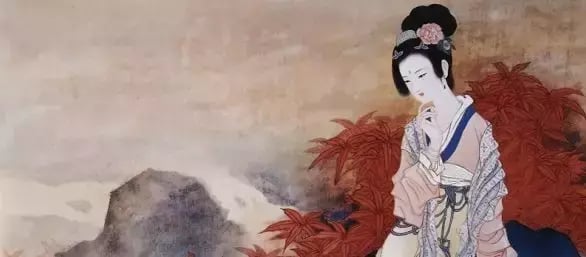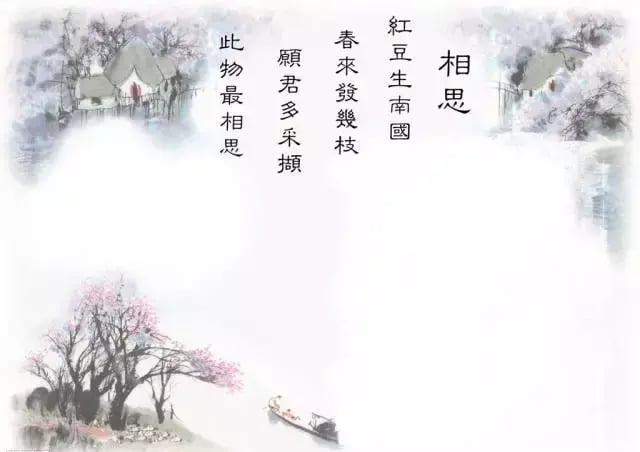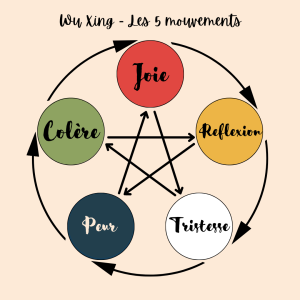Diseases caused by emotions must be treated with emotions.
Dr Zhu Weimin (December 29, 2022)
Clinical case of Dr. Zhu Danxi (1281-1358)
A woman was engaged, but the man she was supposed to marry had gone to the Guangdong and Guangxi regions and had not returned for five years. This situation was a great shock to the woman, as her future was uncertain. She couldn't help but worry, which eventually led to a disease caused by the accumulation of dark thoughts. Troubled and heavy-hearted, she naturally lost her appetite, resulting in an illness. For six months, she would sit facing the wall without eating. Most of the doctors she had consulted were powerless in the face of her condition, and her condition did not improve. Zhu Danxi was a renowned physician of the time, and after taking the woman's pulse, he said, "This woman's disease is caused by love and melancholic thoughts, which have led to stagnation of Qi in the spleen, preventing the spleen from transforming food and fluids, ultimately causing damage to the liver and spleen." Zhu Danxi told her father, "This disease can only be cured if she becomes angry, perhaps." Anger can dissipate the accumulation of stagnant Qi.
Zhu Danxi slapped the woman and scolded her, which made her angry. After crying a lot and getting angry, her state of mind improved somewhat. Then, Zhu Danxi comforted the woman by telling her that her fiancé had sent a letter and would return soon. Fortunately, the woman's fiancé did indeed return after three months, and her love sickness was completely eliminated. Zhu Danxi used an emotional therapy called "conquering emotion with emotion" to treat the woman's psychosomatic illness. When one of the seven emotions is excessive, an opposite emotion is used to balance and alleviate that emotion. In this case, the method involved using anger to overcome excessive thoughts and joy to dissipate excessive thoughts. Ultimately, the woman was cured of this persistent illness caused by her sorrow for her fiancé. According to the theory of Chinese medicine, the spleen and stomach are responsible for the digestion of food and fluids. When the mind is preoccupied with excessive thoughts, it leads to stagnation of vital energy, thereby disrupting the functioning of the nervous system and reducing the secretion of digestive juices. This manifests as loss of appetite, low food intake, a haggard appearance, shortness of breath, mental and physical fatigue, discomfort, sleep disturbances, and frequent dreams. In the case of this woman, her sorrow for her fiancé injured her spleen, resulting in her lack of appetite. Zhu Danxi first used words to upset her, then slapped her to provoke her and allow the stagnant energy to rise. Then, he comforted her with joy, which ultimately led to the woman's healing.
Diseases caused by emotions must be treated with emotions,
as acupuncture and medications have little effect. As the proverb says, "the remedy for a disease of the mind lies within the mind itself," that is the principle at hand. Thus, the seven emotions are not only one of the main factors in the development of diseases, but they also constitute an effective method for treating and preventing certain illnesses, known as the emotion regulation method for healing emotions.
The chapter "Great Discussion on the Correspondence between Yin and Yang" from the Yellow Emperor's Inner Canon emphasizes that "excessive joy injures the heart, fear can control joy," which means that excessive joy harms the heart, and fear can contain it. "Excessive grief injures the lungs, joy can overcome grief." Excessive grief damages the lungs, and joy can alleviate grief. The principle of reciprocity among the seven emotions establishes the theoretical basis for the emotion regulation method to heal emotions.
Using fear to control joy, using joy to dissipate sadness, using sadness to control anger, using anger to relieve worries, and deep contemplation to soothe fear, all of this actually involves shifting the points of excitement in the human body, reversing the various extreme emotions of the individual to bring them back to balance and stability. From the perspective of modern medicine, this means creating a new focus of excitement in the cerebral cortex to neutralize or alleviate the existing dominant center and achieve emotional balance through mental stimulation.
Translation by Dai Liang, "Collection of the Chamber of the Nine Spirits of Mount Ling," Yuan Dynasty.
You might also be interested in the article below :
The Theory of the Five Elements used to treat difficult psychiatric disorders (French video)
Ginger Story 2 (Video in Chinese, English subtitles)
Why did the Medicine King Sun Simiao ride on a tiger?














